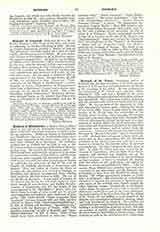

Richard of Middletown (A MEDIA VILLA), flourished at the end of the thirteenth century, but the dates of his birth and death and most incidents of his life are unknown. Middleton Stoney in Oxfordshire and Middleton Cheyney in Northamptonshire have both been suggested as his native place, and he has also been claimed as a Scotsman. He probably studied first at Oxford, but in 1283 he was at the University of Paris and graduated Bachelor of Divinity in that year. He entered the Franciscan order. In 1278 he had been appointed by the general of his order to examine the doctrines of Peter Olivus, and the same work was again engaging his attention in 1283. In 1286 he was sent with two other Franciscans to Naples to undertake the education of two of the sons of Charles II, Ludwig, afterwards a Franciscan, and Robert. After the defeat of Charles by Peter of Arragon the two princes were carried as hostages to Barcelona and Richard accompanied them, sharing their captivity till their release in 1295. The rest of his life lies in obscurity. A new point of interest at the present day lies in the fact that, medieval scholastic though he was, he knew and studied the phenomena of hypnotism, and left the results of his investigations in his “Quodlibeta” (Paris, 1519, fol. 90-8) where he treats of what would now be termed auto-suggestion and adduces some instances of telepathy. His works include “Super sententias Petri Lombardi”, written between 1281 and 1285, and first printed at Venice, 1489; “Quaestiones Quodlibetales” in MS. at Oxford and elsewhere; “Quodlibeta tria” printed with the Sentences at Venice, 1509; “De gradibus formarum” in MS. at Munich; and “Quaestiones disputatae” in MS. at Assisi. Other works which have been attributed to him are: “Super epistolas Pauli”; “Super evangelia”; “Super distinctiones decreti”; “De ordine judiciorum”; “De clavium sacerdotalium potestate”; “Contra Patrem Joannem Olivum”; a poem, “De conceptione immaculata Virginis Mariae”; three MS. sermons now in the Bibliotheque Nationale (MS. 14947, nos. 47, 69, 98), and a sermon on the Ascension, the MS. of which is at Erlangen. Works erroneously ascribed to him are a treatise on the rule of St. Francis; the “Quadragesimale” which was written by Francis of Asti; the completion of the “Summa” of Alexander of Hales, and an “Expositio super Ave Maria”, probably by Richard of Saxony. His death is assigned by some to 1307 or 1308, by Pits to 1300, by Parkinson to some earlier date on the ground that he was one of the “Four Masters”, the expositors of the Rule of St. Francis.
EDWIN BURTON

